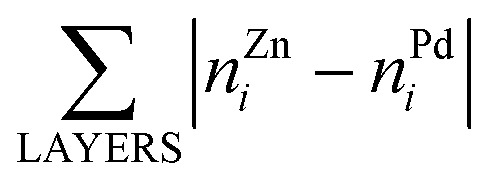Table 2. Structural properties of the homotops Pd70X70 (X = Au, Ag, Cu, Zn) with the lowest energies EES and ETOP. Average coordination numbers of X by X, NX–X, X by Pd, a NPd–X, and Pd by Pd, NPd–Pd are given to facilitate comparison with experimental (e.g. EXAFS) data.
| X | N Pd–X BOND | N X CORNER | N X EDGE | N X TERRACE | N X SUBSURFACE | N X CORE | N X–X | N Pd–X | N Pd–Pd | |
| Au | ES | 260 | 24 | 24 | 22 | 0 | 0 | 3.57 | 3.71 | 7.17 |
| TOP | 262 | 24 | 24 | 22 | 0 | 0 | ||||
| Ag | ES | 234 | 24 | 24 | 22 | 0 | 0 | 3.94 | 3.34 | 7.54 |
| TOP | 262 | 24 | 24 | 22 | 0 | 0 | ||||
| Cu | ES | 358 | 16 | 17 | 1 | 35 | 1 | 4.20 | 5.11 | 3.69 |
| TOP | 382 | 12 | 14 | 8 | 34 | 2 | ||||
| Zn b | ES = TOP | 422 | 16 | 14 | 16 | 20 | 4 | 2.57 | 6.03 | 3.54 |
aFor NPs with 1 : 1 composition, the average coordination number of X by Pd equals the average coordination number of Pd by X.
bThe same structure yields both the lowest EES and ETOP for Pd70Zn70; in this structure  equals to 136.
equals to 136.
